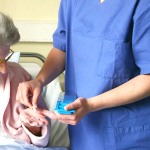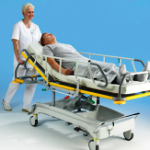 Narcology Nurse
Narcology Nurse

The narcological hospital or narcological department is a regime, as well as psychiatric hospitals or departments. This means that there is a certain regime - the entrance doors are locked, there is no free entry and exit, the windows are barred, patients are under strict supervision or under the supervision of staff on duty. Each nurse of the narcological department must undergo training in the specialty "nursing in narcology" with subsequent certification and re-certification once every 5 years.
Main responsibilities
The duties of the nurse of the ward of the narcological hospital include distributing medicines to patients, feeding debilitated patients, preparing for laboratory tests, recording patients with narrow specialists, administering injections and conducting drip infusions in the absence of a procedural nurse.
Patients of the narcological department take tableted medicinal substances under the supervision of a medical worker. The nurse checks if the patient has swallowed the prescribed medicines.
When prescribing potent drugs and psychotropic substances, the narcology nurse draws up a procedure for fulfilling the doctor's prescription in accordance with the regulatory framework governing their appointment and use. At the same time, a mark on the completion is made in the medical history, the drug is written off in the journal, empty ampoules and blisters from under the tablets are handed over to the head nurse.
Fluorography in narcology
Huge importance is attached to the fluorographic examination of each patient admitted to the department. It takes into account the peculiarities of the contingent of patients, many of whom are unemployed, a certain place of residence, leading an asocial lifestyle. In this category of patients, the risk of contracting tuberculosis is very high.
All patients are sent to the fluorography room for examination. A nurse working in the narcological department must strictly ensure that each patient has the result of a fluorographic examination. In case of detection of focal lesions of the lungs, the doctor prescribes a consultation with a phthisiatrician with a possible subsequent transfer to an anti-tuberculosis dispensary.
Patients with alcoholic delirium
Close attention is required in patients with delirium tremens with hallucinosis or convulsions.
With hallucinosis, the patient can be dangerous to himself and others, so he needs strict supervision and mild immobilization until the cessation of motor and speech excitation. Excitation is stopped by drugs prescribed by the attending physician.
With convulsions in the state of alcoholic delirium, it is important to start providing assistance very quickly. As a rule, an experienced nurse of the narcological department, when convulsions have begun in a patient, already draws an anticonvulsant drug into a syringe, very quickly informs the doctor about the patient's condition through courier and fulfills the appointment.
Drug addicted patients
This contingent of patients often characterizes deceit, resourcefulness, the desire to use cunning to get their own benefit or information of interest. Knowing the psychology of such patients, the narcology nurse should always be vigilant, not slide into familiarity, but also not be rude and arrogant in communicating with patients.
Patients using psychoactive substances develop psychoses with very strong motor and speech arousal. Such patients are aggressive and dangerous, therefore, they require immobilization, immediate relief of the condition and strict control.
In the treatment of drug addicted patients, neuroleptic complications may develop, appearing in salivation, spasms of the masticatory muscles, as well as the muscles of the neck, back, and shoulders. It is necessary to notify the attending physician and follow his instructions.
The condition of patients in the narcological department can deteriorate at any time and become critical. Therefore, nurses working in narcology must have the skills of emergency medical care, know the rules of cardiopulmonary resuscitation and not get lost during such situations.





